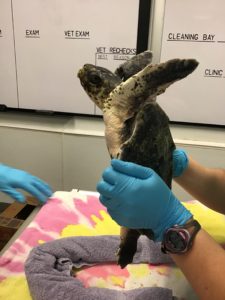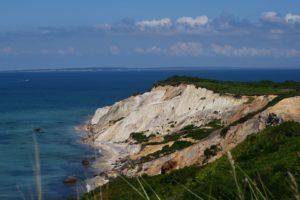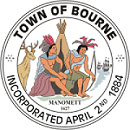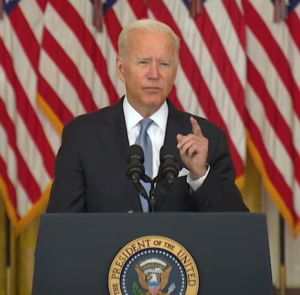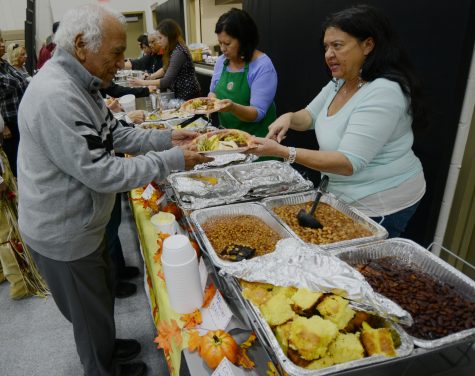 MASHPEE – The People of the First Light, who have inhabited what is now Mashpee for around 12,000 years, celebrated their long history with the land and their future generation’s involvement with tradition Saturday during the 7th annual Native American Thanks Giving ceremony.
MASHPEE – The People of the First Light, who have inhabited what is now Mashpee for around 12,000 years, celebrated their long history with the land and their future generation’s involvement with tradition Saturday during the 7th annual Native American Thanks Giving ceremony.
What has now become a Wampanoag tribe tradition began inside the Old Indian Meeting House, the oldest Native American meetinghouse in the nation, where spiritual leader Wayne Jackson provided a greeting and multiple prayers.
He also opened the floor to those present, many of whom reflected on their proud heritage.
“We’re still here” was a commonly-uttered phrase, something almost all of the speakers touched on while remembering their community’s longtime involvement with the mid-Cape and the very building they congregated in.
Jackson said repeatedly that he loves the strength of the Wampanoag people, the fortitude of their faith, but also their welcoming nature despite a bloody history during American colonization.
“Today is not about ‘oh, here comes the white man,’ it’s, ‘thank God the white man is here and is starting to recognize us,’” Jackson said.
Tribal Chairman Cedric Cromwell said that the original Thanksgiving, the one schoolchildren have reenacted and the one depicted in many Yankee paintings, isn’t quite how it went down.
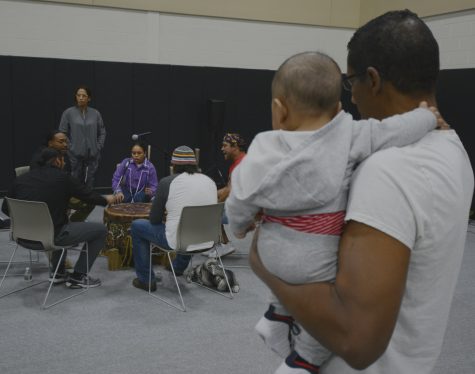 Cromwell’s position on the historical occurrence matches that of the Plimoth Plantation Museum’s; namely, that one day during the harvest, pilgrim men were practicing their shooting, which caused Chief Massasoit and his men to investigate.
Cromwell’s position on the historical occurrence matches that of the Plimoth Plantation Museum’s; namely, that one day during the harvest, pilgrim men were practicing their shooting, which caused Chief Massasoit and his men to investigate.
This brought tribesmen and pilgrims together at a freshly-made table, although Cromwell noted that the pilgrims were likely practicing with their rifles in the first place to later shoot many natives.
Another misconception about the first Thanksgiving, according to Cromwell, was the food. There was no turkey on those plates, but rather shellfish, corn, squash and perhaps a few other fixings.
“We’re giving thanks that we are still here and thriving, we have to memorialize and celebrate our successes and the new day our creator has given us,” Cromwell said.
The Wampanoag culture was reflected in the day’s dinner table, as community members feasted on freshly shucked shellfish, multiple preparations of corn, beans and squash, as well as traditional sassafras tea.
While the majority of Americans will this week celebrate a holiday Cromwell referred to as historically inaccurate, he said the focus of tribal members will be on assuring the future continues to shine a bright light on Wampanoag tradition and faith.
“Our traditions are still here, and they’re coming back,” he said.






